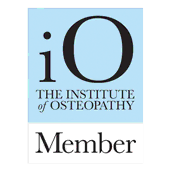ANTI-HARASSMENT AND BULLYING POLICY
General
- This policy covers every individual working within the clinic irrespective of their status.
- The Clinic supports the rights of all people to seek, obtain and hold employment without harassment. It is the Clinic’s policy to provide a working environment free from harassment and bullying on any grounds (in particular, this includes the Protected Characteristics of age, disability, gender reassignment, race, religion or belief, sex or sexual orientation).
- The Clinic will not permit or condone harassment towards any of its employees (including temporary employees), associates, contractors working in the Clinic, workers, patients, suppliers or any other persons visiting the premises.
- All staff at the Clinic have a personal responsibility to behave in a manner that is not, nor is likely to be perceived as, offensive to others.
- Any person acting in breach of this policy may be liable to disciplinary action including dismissal. Harassment can constitute discrimination and, accordingly, may be unlawful. The harasser may be held personally liable for such conduct. In addition, harassment can amount to a criminal offence, rendering the harasser liable to criminal prosecution.
- Harassment may also involve a third party such as a supplier or customer and an employee is asked to report any concerns about this to their manager.
The Aim of This Policy
Definitions:
- Harassment is unwanted conduct related to a protected ground which has the purpose or effect or violating a person's dignity or creating an intimidating, hostile, degrading, humiliating or offensive environment for them.
- Harassment based on protected characteristics is unlawful.
- Sexual harassment is unwanted conduct of a sexual nature which has the purpose or effect of violating a person's dignity or creating an intimidating, hostile, degrading, humiliating or offensive environment for them.
- It is also harassment to treat a person less favourably because they have submitted to or rejected previous unwanted conduct of a sexual nature or related to gender reassignment or sex which had the purpose or effect of violating another person's dignity or creating an intimidating, hostile, degrading, humiliating or offensive environment for them.
- The following are examples of behaviour that are likely to be inappropriate and unacceptable. These are examples and are not an exhaustive list:
- Physical conduct - unwanted physical conduct, including unnecessary touching, patting or pinching, assault, physical threats and insulting or abusive behaviour or gestures.
- Verbal conduct of a sexual or racial nature or relating to disability or sexual orientation- unwelcome advances, propositions or pressure for sexual activity, offensive flirtations, lewd comments or abusive language which denigrates or ridicules, insults which are gender, race or nationality related or which relate to sexual orientation (including racist or sexist name-calling) and offensive comments about dress, appearance or physique, and the writing and/or sending of written materials, including e-mails, of an offensive nature.
- Non-verbal conduct of a sexual or racial nature or relating to disability or sexual orientation- the display of pornographic or sexually suggestive pictures, offensive objects or written materials, the display of sexually or racially offensive written or visual material, including graffiti, the organising of kiss-o-grams or strip-o-grams, comments in social media platform chats, hostility to employees on the grounds of their race or nationality or gender or disability or sexual orientation or other unacceptable non-verbal conduct which denigrates a person.
- This Policy is not a term of your contract of employment and may be updated as and when needed.
Procedure
- Given the sensitivity of harassment allegations, the purpose of this procedure is to facilitate the resolution of harassment complaints.
- Informal
- Wherever reasonably possible, if you believe that you have been the subject of harassment you should tell the person responsible that you find their behaviour offensive and ask them to stop.
- It is recommended that if you are the subject of harassment, you keep personal notes of all events from the first instance.
- If the harassment continues, or a single incident is sufficiently serious, or you are unable to confront the person carrying out the harassment, then you should refer the matter to the Clinic Principal.
- If you do not wish to discuss a matter relating to harassment directly with the Principal, or if the alleged harasser is the Principal, you can discuss the matter in full confidence with The Institute of Osteopathy (01582488455/enquiries@iosteopathy.org).
- The Clinic may decide to appoint an external consultant to assist.
- Under normal circumstances, the Clinic would expect such a complaint to be made at the earliest possible opportunity and in any event within one month of the alleged incident taking place.
- The individual that you choose to approach will, in the first instance, provide support and assistance and any complaint will be treated sensitively, seriously and confidentially.
- An employee or member of staff may be uncomfortable about putting their name to a complaint and wish their complaint to be dealt with anonymously. The Clinic will respect this wish but will encourage a complainant to give as much detail as possible to allow the Clinic to investigate. However, if there is not enough detail the Clinic may not be able to undertake a full investigation but will take all reasonable steps to support the employee making the complaint.
- Formal
- If you are not satisfied with the outcome of the Informal procedure, you should proceed under the Formal part of this policy.
- You should set out the incident(s) in writing and make it clear that you are raising a formal complaint and give this document to the Principal.
- If you would feel uncomfortable doing so, or if the alleged harasser is the Principal you should contact the person who deals with Human Resources or an independent body such as The Academy of Physical Medicine.
- Even if you do not wish to progress the matter to the Formal stage of the policy, the Clinic may consider there are sufficient reasons to merit carrying out an investigation and may itself decide to progress the matter to the Formal stage of the policy.
- Where the matter is progressed to the Formal stage, an investigation will take place as soon as possible. Whilst every effort will be made to conclude an investigation as soon as possible, the numbers of people involved in the investigation may impact upon the time taken.
- Before any decision is made, there will be a meeting with you to discuss the complaints that you have raised.
- If your complaint is upheld so that disciplinary action may be appropriate, you will be notified that the complaint has been upheld and explained what action is proposed. You may not be provided with full details of any disciplinary action (if any) that is taken, as these are confidential between the Clinic and the alleged harasser.
- Disciplinary action may result in the dismissal of the harasser if the complaint is upheld and sufficiently serious. Other disciplinary action including the issuing of verbal warnings may also be taken. If sufficiently serious, the complaint could be referred to the alleged harasser’s governing body and/or to the police.
- You will also be advised if the Clinic finds that your complaint is not well founded (and decides not to proceed with remedial or disciplinary action).
- If you are not satisfied with the outcome of the Formal stage of the policy, you may appeal, using the procedure outlined below.
- If you make a complaint which is found to be capricious, malicious or without foundation, you may find yourself subject to appropriate action by the Clinic which would normally be disciplinary in nature. If a complaint is made in good faith the Clinic will not take such action
- Right to be accompanied
- If you bring a complaint under this policy, you have the right to make a reasonable request that a fellow worker or another appropriate person accompany you to any meeting under the procedure. The companion may address the meeting and confer with you during the meeting but is not there to answer questions on your behalf.
- It is your responsibility to ensure that your chosen companion is willing to act as your companion. If your chosen companion is employed at the Clinic, they will be permitted to take a reasonable amount of time off to accompany you at the hearing.
- The Clinic will reschedule a proposed meeting date if your chosen companion will not be available at the time proposed. It will make every effort to accommodate you if you propose a reasonable alternative. That alternative should, however, fall within five working days, beginning with the first working day after the day proposed by the Clinic.
You will also be advised if the Clinic finds that your complaint is not well founded (and decides not to proceed with remedial or disciplinary action). Appeals
- If you are not satisfied that your complaint has been dealt with satisfactorily, you should consider:
- Referring it to The Institute of Osteopathy (01582488455/enquiries@iosteopathy.org). The iO is an independent body which can offer you impartial (but not legal) advice on how to proceed. It will do so in complete confidence if you prefer, but can also act as a mediator between you and the Clinic.
- Referring your complaint to the alleged harasser’s governing body (if any). This is a very serious step and should not be taken lightly, but is an option, particularly if you feel all attempts at mediation have failed.
- Reporting the alleged offence to the police. This should only be done if you believe the alleged offender has broken the law.
Intimidation
- The Clinic will not tolerate intimidation or victimisation of any person who makes a complaint of discrimination or harassment or who assists in an investigation of alleged discrimination or harassment.
- Retaliation against an employee who complains of discrimination or harassment can be expected to lead to disciplinary action.
Employee Responsibilities
- All employees have an individual responsibility to help to create and maintain a harmonious work environment. As part of this responsibility, they must be aware of how their behaviour may affect others. Offence can still be caused even if you are “only joking” and therefore all staff must treat colleagues with dignity and respect.
- The Principal and other managers have a particular responsibility to:
- ensure that staff comply with the policy
- intervene or take action where appropriate to stop any such action and
- set a good example by their own behaviour.
Risk Assessment
- The Clinic will carry out regular assessments to determine the risk of bullying and harassment (including sexual harassment) in the workplace.
Breaches of this policy
- Breach of this policy will be dealt with under our disciplinary procedure and, in sufficiently serious cases, may be treated as gross misconduct leading to summary dismissal.
- Where appropriate, serious cases may be referred to the offender’s governing body or to the police.
- The aim of this non-harassment policy is to draw attention to, and thereby prevent, all types of behaviour which amount to harassment, and which are therefore unacceptable.
These policies were last reviewed on 18/02/2025 and will be next reviewed 18/02/2026.



